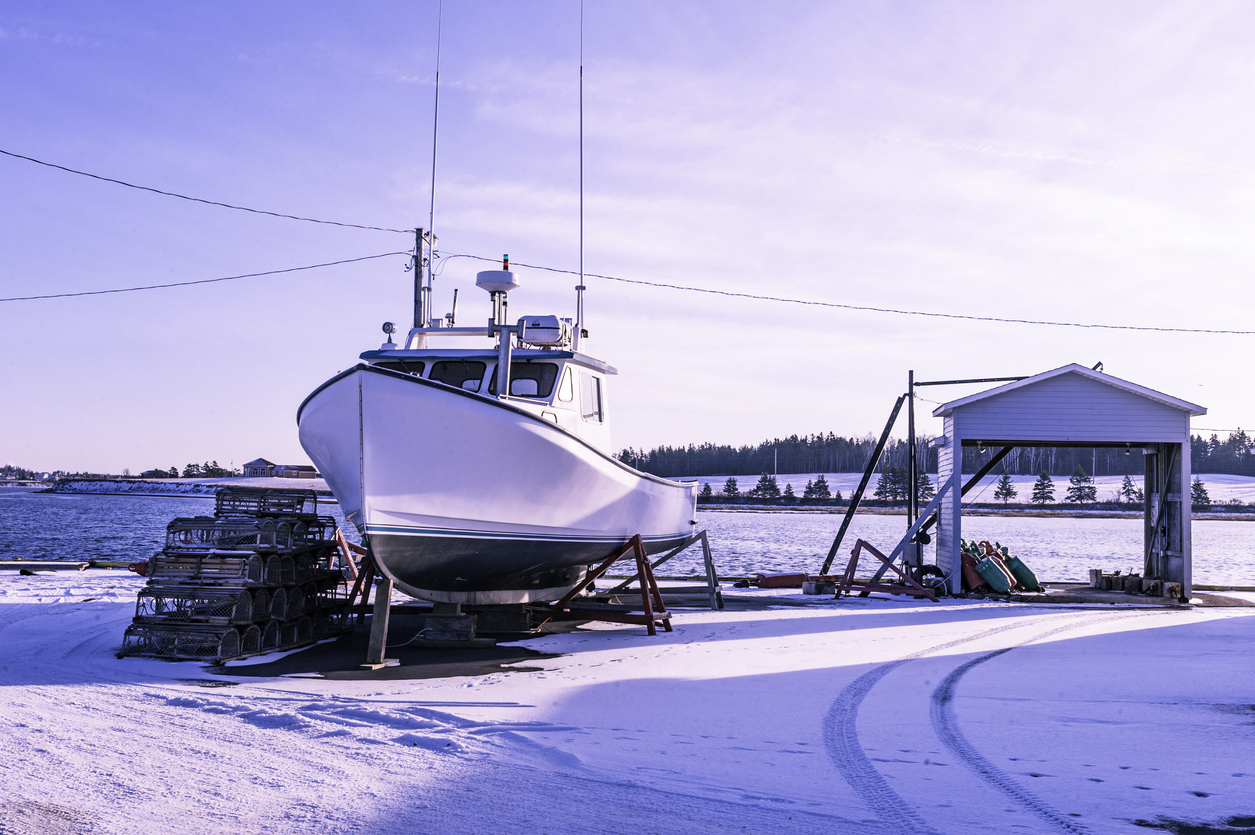
Boat Winterization Techniques for Your Clients
November 10, 2020
The winter season is here for boaters across the United States. Even in warmer-weather areas like Florida and California, the end of boating season means that boaters must take steps to protect their valuable investments. Just like marina insurance protects the assets of marina owners, winterization is an important part of the boat owning experience. Proper winterization can help to ensure that your clients’ boats are ready to return to the water next year and serve to avoid costly damage or loss to expensive equipment. Here are boat winterization tips for you to share with your clients as the temperature plummets.
Boat Storage During Winter
Boat owners have several options when it comes to storing boats for the winter months. The type of storage chosen can influence the winterization steps the boat’s owner must take. At commercial marinas that offer storage, there are typically two major options: indoor or outdoor storage. Within these broad categories are a range of other choices, including wet slips, drydock, dry stack or boat lift, and hard-surface storage locations. For expensive boats that can be hauled out of the water, indoor storage is the preferred choice, as indoor storage facilities have protective roofs. Marinas that offer storage for their customers typically have marina insurance to provide coverage against damage or loss of vessels during the winter months.
Storing Boats in the Water: Winterization Steps
Not all boats can be removed to indoor storage locations during the winter. For those boat owners who wish to overwinter in wet slips or moorings, winterization requires a bit of planning and several important steps to protect the vessel.
The first step is to remove all external equipment and accessories from deck areas. These items can be stored belowdecks or removed to be stored off premises. Next, decks should be covered to protect surfaces from exposure to the elements and to prevent debris and ice buildup that can damage decking. Stored boats may be shrink-wrapped to protect them during wintertime; many marinas offer this service. If the boat cannot be wrapped or covered, it is a good practice to develop a regular inspection schedule, brushing away accumulations of snow, ice, and debris during these inspections.
Keeping ice away from the boat’s hull is another critical step. In northern states, waterways can freeze, pinning boats against docks or pilings and causing significant damage. Some marinas offer slip de-icing equipment, including bubblers. If the marina does not offer this service, investing in a single-slip de-icing system makes smart financial sense for boat owners.
Indoor Storage: Best Winterization Practices
Indoor storage of boats is preferred, but these vessels still require some basic winterization. Covering decks with nylon or canvas covers is one step and inspecting the vessel on a regular basis is another. Marinas have their own procedures for routine inspections. Check with the marina for specific details. While doing so, ask about marina insurance coverages for boats in storage.
For All Boats: Winterization Tips
No matter where or how a boat is stored for the winter, boating associations recommend several winterization steps to protect expensive vessels and equipment from harm. These steps include:
- Washing the boat’s exterior (hull and decks) prior to storage.
- Flushing engine oils and fluids, replacing filters, and refilling with fresh fluids just before storage begins.
- Fogging engine cylinders with winterization preservative products. It is a good idea to fog carburetors on older boats.
- Adding fuel stabilizers to fuel tanks. Many boat owners top up fuel tanks with fresh fuel before storage as well.
- Draining all water systems, including raw and freshwater holding tanks and lines. Many boat owners refill freshwater systems with antifreeze during the winter storage months.
Marina insurance may offer certain protections against damage during boat storage, but these protections do not always provide stem-to-stern coverage. It is a great idea to review boat owners policies with your clients for any gaps. With comprehensive insurance and proper winterization, your clients can rest assured that their boats will be in great shape and ready to return to the water when winter is over.
About Merrimac Marine Insurance
At Merrimac Marine, we are dedicated to providing insurance for the marine industry to protect your clients’ business and assets. For more information about our products and programs, contact our specialists today at (800) 681-1998.
